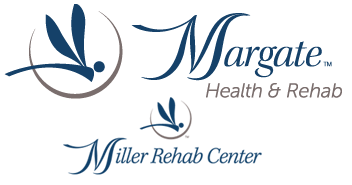What is Covid Rehabilitation?

The Covid-19 virus can affect numerous systems in the body including the lungs, heart, and muscles that make talking and walking possible. Most people will make a full recovery from Covid-19, but others can develop serious, and sometimes long term, complications. For these people, the road to recovery is only beginning once they leave the hospital.
Those who are recovering from more severe cases of Covid-19 may experience a combination of psychological, cognitive, and physical signs and symptoms for months once the virus has left the body. COVID recovery and rehabilitation focuses on helping patients regain their cognitive and physical abilities when recovering from the virus.
Early studies show that COVID patients can experience long term heart and lung damage as a result of the virus, but many improve over time. The sooner these “long haulers” start a pulmonary rehabilitation program, the better and faster their recovery.
Which Patients Need Covid Recovery Rehabilitation?
Many will make a full recovery from COVID, but others will develop “long covid” and experience symptoms for weeks or months after initially being infected with the virus. This group of people are often referred to as “long haulers”.
According to the World Health Organization (WHO) those who are suffering from “long covid” may need rehabilitation to manage the aftereffects of the virus.
These lingering symptoms include:
– lung damage
– heart damage or inflammation
– chronic fatigue
– long term effects from covid complications such as stroke, heart attack or pulmonary embolism
– muscle and joint pain
– conditions like clotting that affect the blood vessels
– cognitive impairments that affect concentration or memory
– depression or anxiety
Patients who were placed on a ventilator while they had COVID may experience even more complications including injury to the airways. Prolonged rest from extended stays in the ICU and long term fatigue can also weaken the muscles.
What Types of Rehabilitation May Help People Recover From The Long Term Effects of COVID-19?
Physical Rehabilitation
Some patients may need physical therapy after recovering from COVID-19 to help them return to normal activities after long term isolation or extended hospital stays.
Physical rehabilitation can help patients who have seen a decrease in physical strength begin to gradually build up their stamina and move around more.
The goals of physical therapy for patients recovering from COVID include:
– restore muscle function
– help patients return to a normal life
– reduce the chances of mental health issues that may occur as a result of limited mobility
Pulmonary Rehabilitation
Patients recovering from COVID can also have long-term effects on their lung function. This is much more likely to occur in patients with pre-existing chronic lung illnesses, such as chronic obstructive pulmonary disease (COPD).
The goals of respiratory therapy for COVID patients include:
– managing respiratory complications
– improve lung capacity and reduce shortness of breath
Pulmonary rehabilitation also aims to improve muscle strength and endurance. As the patient becomes more active, their breathing improves.
Conclusion
The long term effects of COVID-19 are numerous and can affect individuals differently.
Starting a COVID rehabilitation program after recovering from the virus can help you to get back to a normal life and activities as soon as possible.
If you, or someone you love, continues to suffer from the effects of COVID for more than two weeks after the initial symptoms subside, COVID rehabilitation may be a good option.
Margate is a leader in returning patients to their homes as quickly as possible. With rehabilitation services available 7 days a week, patients get the intensive treatment they need to return to their prior level of independence as quickly as possible. We partner with local hospitals, physicians and insurance companies to support our patients’ goals in their desire to return home to the resumption of a healthy, active lifestyle. Contact us today to learn more.
